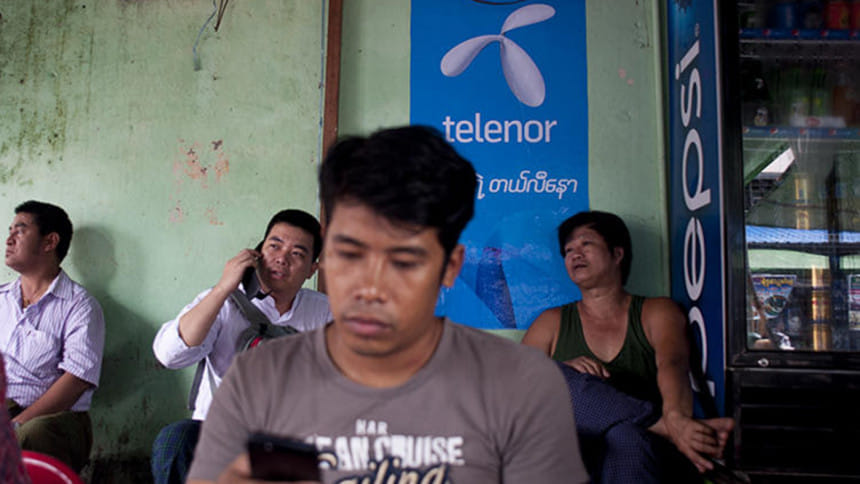UN, CPJ urge Myanmar to restore internet to Rakhine, Chin

The UN Special Rapporteur on the situation of human rights in Myanmar and the Committee to Protect Journalists (CPJ) have both urged Myanmar authorities to immediately restore internet access to Rakhine and Chin states and ensure that connectivity is not interrupted in the future.
Myanmar government's shutdown of mobile data networks in nine townships could have serious implications for human rights and humanitarian monitoring in the conflict areas of Rakhine and Chin States, a UN expert warned on Monday.
"As there is no media access and serious restrictions on humanitarian organisations in the conflict-affected area, the entire region is in a blackout," said Yanghee Lee, the UN Special Rapporteur on the situation of human rights in Myanmar.
"I fear for all civilians there, cut off and without the necessary means to communicate with people inside and outside the area."
On 20 June, the Ministry of Transport and Communications of Myanmar issued an order to all mobile network providers under the Telecommunications Law 2013 to temporarily stop mobile internet services. The ministry cited disturbances to the peace and internet services being used to coordinate illegal activities for the shutdown.
There are credible reports that on June 19, the Tatmadaw conducted helicopter attacks in Minbya Township in central Rakhine. The following day, the Arakan Army fired on a navy ship in Sittwe, killing and injuring several soldiers.
"I am told that the Tatmadaw is now conducting a 'clearance operation', which we all know by now can be a cover for committing gross human rights violations against the civilian population," the UN expert said. "We must not forget that these are the same security forces that have so far avoided accountability for the atrocities committed against the Rohingya in Rakhine State less than two years ago."
The conflict between the Arakan Army and the Tatmadaw has been ongoing since late 2018, with civilians bearing the brunt of the violence. Over 35,000 civilians have been displaced and dozens of civilians, including children, have been killed and injured by both indiscriminate and targeted attacks. Others, mainly ethnic Rakhine men, have died while in the military's custody.
"I call on the Government to reverse its decision to impose the mobile internet ban," Lee said. "Both parties to the conflict must ensure that civilians and civilian objects are protected at all times and uphold international humanitarian law. The restrictions on the media and humanitarian organisations must be lifted immediately."
During a press conference on June 22, a military spokesperson told local media that the army had no information on the shutdown, the Reuters report said. A report by Agence France-Presse noted that, while the order only affected mobile data services, few people in Rakhine and Chin states use computers to access the internet, and instead rely on their phones.
"Myanmar's internet blackout deliberately impedes journalists' ability to send, receive, and publish reports from Rakhine and Chin states," said Shawn Crispin, CPJ's senior Southeast Asia representative. "Authorities should lift their censorship order and allow reporters to report freely on the region's armed conflict."
Today, a journalist at the Union Development Media Group news agency, based in the Rakhine state capital, Sittwe, told CPJ that the internet shutdown in still in effect. The journalist spoke to CPJ on the condition of anonymity, citing fear of government reprisal.
A Ministry of Transport and Communications representative answered CPJ's phone call but declined to comment on the shutdown.
The internet shutdown follows other government actions against journalists covering the insurgent conflict, with military officials filing a criminal defamation complaint against The Irrawaddy editor Ye Ni in April and a criminal complaint under the colonial-era Unlawful Association Act against Development Media Group editor-in-chief Aung Marm Oo in May, as CPJ reported at the time.

 For all latest news, follow The Daily Star's Google News channel.
For all latest news, follow The Daily Star's Google News channel. 



Comments